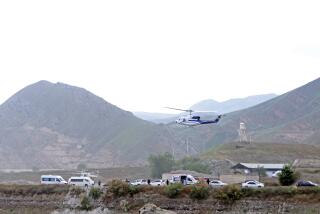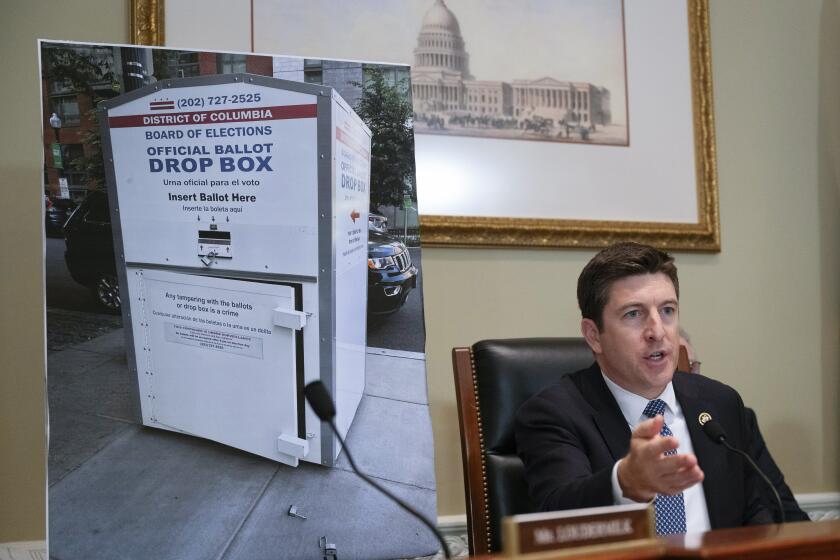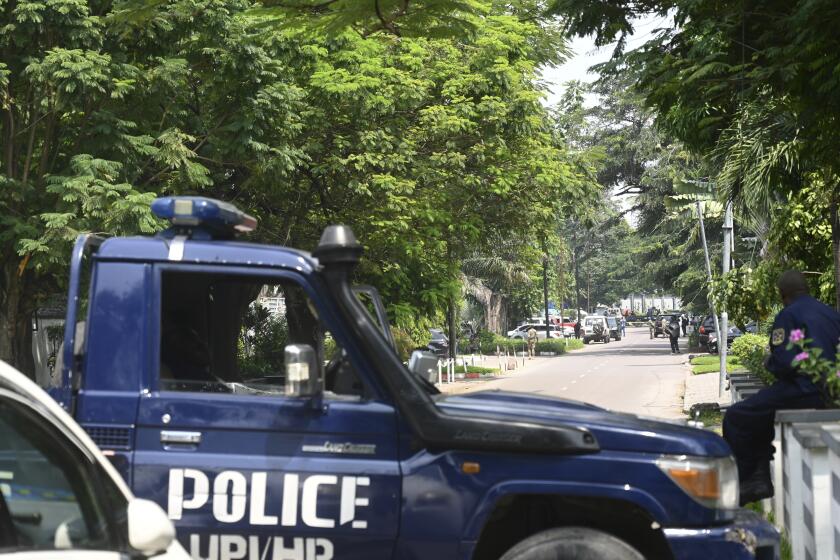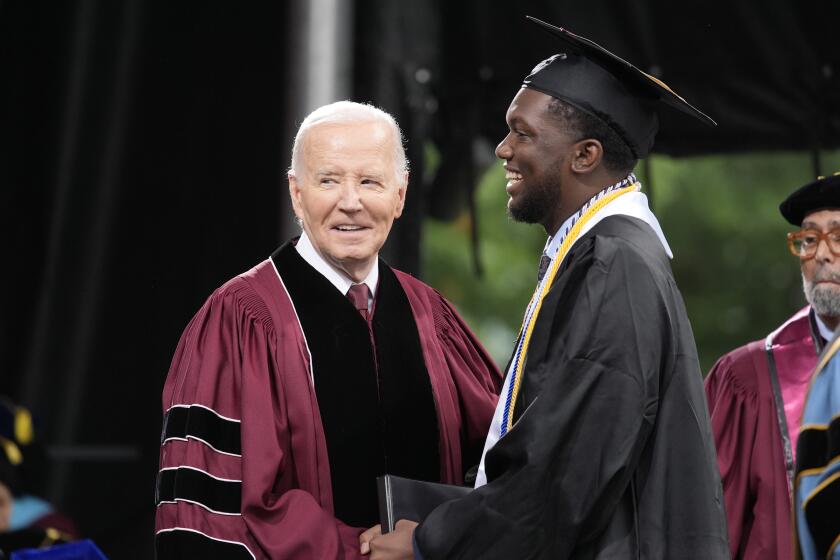U.S. Must Stop Playing Ostrich in Haiti : ‘Toothless Diplomacy’ May Fuel Incipient Revolution
Something resembling an election will be held in Haiti this Sunday, but few Haitians are planning to participate. Unlike the many who stay away from the polls in the United States, the choice to do so in Haiti is an act of civic responsibility.
Haiti’s military government, after actively sabotaging the Nov. 29 elections, has drawn up its own rules for Sunday’s effort to elect a civilian president and legislature. It has hand-picked an electoral council. Its troops will occupy the polling places and scrutinize ballots to ensure that the citizens have done their duty--not to democracy but to the Duvalierist tradition.
This is a sad result for the thousands who braved the bullets last November. Their civic obligation will be to stay home--though they risk a fine, harassment and even imprisonment if they do so.
The election may well be the lightning rod for the revolution that is daily growing in the hearts of Haiti’s democrats. But if brave Haitians are to protest their lot, will the international community of democrats step forward and offer its support? Not if recent events and actions are any indication.
Last week in Barbados the member nations of the Caribbean community met to consider the situation in Haiti. These neighboring democratic countries have a stake in the outcome. Talk before the meeting focused on denying diplomatic recognition to the new Haitian government. Such strong action was not to be in the cards.
The United States, in the person of a deputy assistant secretary of state, was present in Barbados--albeit behind the scenes. We might as well have stayed home given the results.
Seeking consensus at all costs, the group issued a mild communique, acknowledging the “offending features of the electoral process” and calling on the Namphy government to restore “credibility to the electoral process, including in particular the provision for secret balloting.”
The communique did not threaten; rather, it pleaded with Lt. Gen. Henri Namphy to conduct a free and fair election. It was a minimalist approach, with little relevance to what is actually happening in Haiti.
Walter Fauntroy, the delegate from Washington who attended the Barbados meeting, accused the Caribbean leaders of “abandon(ing) moral leadership.”
The Reagan Administration’s closest ally in the Caribbean, Prime Minister Edward Seaga of Jamaica, led the effort to soften the Barbados communique. And Secretary of State George P.Shultz expressed support for the statement. This exercise in toothless diplomacy sent an unmistakable message to the Haitian people: The United States has lost interest.
Leaving aside the appearance of amorality, this episode demonstrated that Haiti is not yet to Ronald Reagan what Nicaragua or even Panama has become. The governments of these two nations receive, correctly, the scorn of the United States; the world knows that the United States wants a change. The leaders in these places who have ambushed democracy are the subjects of American derision and intrigue.
It is lamentable that the highest levels of our government are not more interested in Haiti. At a minimum, we should issue a statement before the election condemning the Haitian government for its refusal to modify the election process, as we have demanded. This will show the citizens who boycott the election that we are on their side.
Few expected, or wanted, the United States to treat Haiti like Grenada and send an invasion force. But we could have expected an aggressive multilateral effort to isolate the Namphy government and demonstrate international solidarity with the internal opposition. After all, the Reagan Administration invested $7 million in the Nov. 29 election, and has said that it supports the hemisphere’s democratization movements.
The Administration’s apparent hope now is that a civilian will be elected on Sunday who will gradually accumulate power and steer the country away from the Duvalierists and toward democracy. That, it is said, will move Haiti’s troubles off the front pages and offer at least some hope of future democratization.
It is more likely that the new president of Haiti will enjoy the power of the current president of Panama. You don’t know his name? That is because the name that you do know--Gen. Manuel Antonio Noriega, the corrupt and ruthless Panamanian dictator--is the real ruler, as Gen. Namphy will be.
The problem in Haiti will not disappear even if it is temporarily off the front pages. One day a future U.S. Administration will have to deal with a Haitian crisis that will immediately threaten U.S. interests. It will be made worse because the Reagan Administration did not recognize a crisis when it saw one.
More to Read
Start your day right
Sign up for Essential California for news, features and recommendations from the L.A. Times and beyond in your inbox six days a week.
You may occasionally receive promotional content from the Los Angeles Times.






